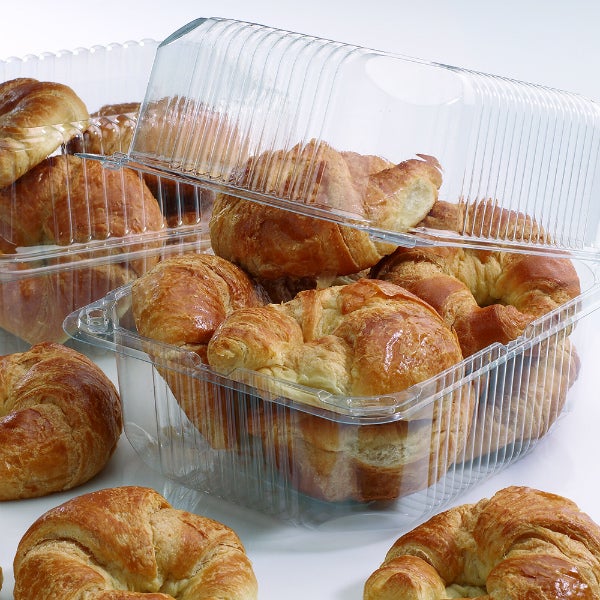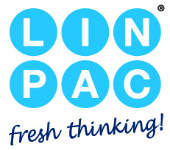
Packaging manufacturers are working smarter than ever before to develop packs that are lighter, stronger and more recyclable. Packs also need to be fit for purpose in terms of protecting, preserving and presenting bakery products.
But what is the best material to use? Fresh food packaging manufacturer LINPAC takes a look at the benefits of Polyethylene Terephthalate (PET) for the bakery sector.
The challenge for packaging manufacturers is to develop pack solutions that address the protection and presentation needs of delicate bakery and patisserie products, whilst minimising their environmental impact.
LINPAC innovation director Ana Fernandez said: "Consumers expect fresh, well-presented morning goods, appetising patisserie and stand-out celebration cakes. Once a consumer purchases a product, they expect it to survive the journey home and be good enough to present at the table."
LINPAC believes the packaging material that provides the best presentation and protection to fresh, chilled and delicate bakery products is PET. PET is renowned for being a strong, lightweight and high-barrier material that is fully recyclable. Its distinct crystal clear nature also ensures products look fresh and attractive to consumers.
Bakers and retailers are looking for lightweight packaging solutions that do not affect a pack’s rigidity and protective qualities for transit. PET is a food safe and robust packaging material that will not shatter and cause a hazard if broken or damaged in store.
PET is cost -ffective to manufacture. All production scrap is fully recyclable in-house, minimising manufacturer waste. It is also a versatile material being moulded, extruded, cast and blown into a range of packaging formats.
As consumers become more environmentally conscious, the awareness of the need for recycling is increasing around the world. PET packs can be recycled alongside standard drinks bottle waste. LINPAC utilises up to 95% recycled PET in its new LeanBake family, solutions for the bakery and patisserie sector. Significantly, the company has invested in in-house super cleaning across its manufacturing sites to process rPET flake. This guarantees its use of recycled material is totally food safe under all circumstances.
The use of both PET and rPET is rising thanks to its strength, barrier performance, aesthetics and food safe properties, as well as its recyclability. Many leading brands today make a point of identifying their packaging solutions are made of post consumer recyclate.
The LINPAC LeanBake® packaging portfolio for the bakery and patisserie sector is manufacturered with high levels of rPET. Included in the range are hinged, airtight and semi airtight pack designs. Hinged boxes can also be designed in an airtight format, allowing sponge based products to retain their moisture within the packs. Packs are also available slightly vented on three sides to allow air to circulate and ensure that pastry products, such as croissants, retain their crispiness.
Ana Fernandez continued: "There are numerous packaging formats available to the bakery sector, from plastic or carton containers and hinged boxes, to trays and paper bags, but the use of rigid PET containers is increasingly popular.
"Many bakers and retailers use these innovative packaging solutions to ensure the crystal clear presentation of their delicate goods, as well as maintain the freshness expected from their ranges."

